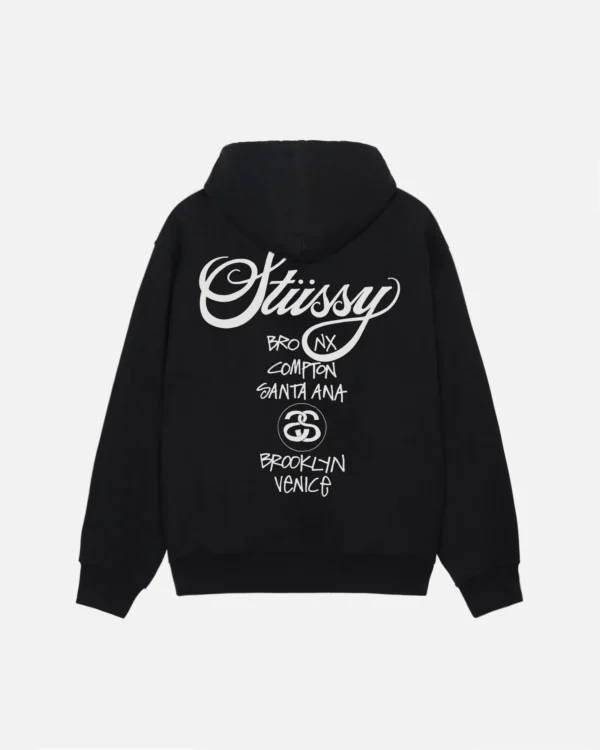What is Strategic Brand Management?
Brand management is the implementation of different approaches and techniques that help a brand in creating, maintaining and flourishing its perception, public relations and business. If these management tactics are combine with market strategies and tactics, then “strategic brand management” comes to life, which enhances branding endeavors.
Does My Company need Strategic Brand Management?
Strategic brand management has become a backbone of companies in the modern age. Through strategic brand management, professional and proactive customer support channels are maintained. A unique and relevant brand identity is created that is appealing to the audience. People’s trust and credibility towards your brand is enhanced as brand management can help develop a sense of a healthy relationship with the company. Running your business with a proper framework and efficient marketing strategies in process makes your business bloom more.
Hence, it doesn’t matter how big or small your business is, or whatever mode it operates in, every company needs to apply strategies in order to boost its business and reputation.
How to Implement Strategic Brand Management?
Strategic, consistent and effective brand management can be a daunting task, but with the right technology and tactics at hand, your brand can go places.
Here are a few tips and tricks to implement if you want to manage your brand strategically:
-
Targeting
The first and foremost thing to do is to identify and familiarize yourself with the target audience of your brand. Find out the age range, location and lifestyle of your present or potential consumers. Run research and analytics to investigate their interests, preferences, trends, likes and dislikes. This will help you pinpoint the exact areas that would appeal to them and in turn make your brand more desirable to them. Remember, your brand’s image, products, services, marketing strategies and overall operation heavily depends on your target audience.
-
Identity
The marketplace of almost all sorts of brands is pretty saturated and competitive. It has become way more difficult nowadays to create such a brand identity that is both unique and distinctive. The name, logo and overall identity of your brand should be relevant and snappy. The color scheme should be appropriate and intriguing according to the main purpose and products of your brand. Now, creating such an image for your brand would require a certain level of research and knowledge, which is only possible if you apply strategic branding tactics.
-
Consistency
Successful and top-notch brands are not only known for their great products and out-of-the-box marketing, but one more thing that sets them apart from their competitors is consistency. They make sure that in whatever they do and whatever they put forward, they portray a consistent image of the company; be it visually or spiritually. Whether they are running campaigns, collaborating with other brands, adapting to any ongoing trends, or launching any new products, they make sure that the original perception and purpose of one brand is not lost in the process.
-
Research
Managing an emerging brand requires an immense amount of regular research of the market. You need to Keep record of any changer and ups-n-downs in the domain. Also, you need to keep an eye on competitor brands; regarding their strategies, tactics and how they go about certain things so that you can position yourself accordingly. Moreover, you should keep yourself aware and educated regarding the latest trends that can boost your brand’s marketability.
-
Virtuality
Today’s digital age has served us with an additional challenge of maintaining the online reputation of our brands on top of physical perception and focusing on the core business. Most customers nowadays are attractive or repulsive towards your brand based on your virtual presence. This includes social media and other online profiles management, customer review management, Search engine optimization, brand awareness and reputation management. All this and more is essential for effective brand management.
-
Marketing
Marketing is one of the key components that can make or break a business. Executable and effective marketing strategies should be a part of every business plan. Digital tools and marketing experts, when combined, can lead your brand to the heights of glory. Deep and continuous analysis of the latest marketing strategies and their implementation can be a great investment in the success of your business.
For example, one of the leading sources of brand awareness is the creation of a Wikipedia page through Wikipedia page writing service. It ensures recognition and credibility of your brand as Wikipedia is a globally trusted site.
-
Communication
The backbone of any successful or emerging brand is the trust and satisfaction of their customers. Maintaining a positive relationship with present and potential customers is very important as customers are the ones keeping your ship afloat. A professional and proactive customer support channel should be maintain in order to address and act upon queries and reviews. Moreover, press releases, blogs and brand awareness campaigns can be run to maintain healthy communication with the public.
-
Recruitment
Now all these brand management strategies can only be work upon if you possess (or somehow absorb within days) the expertise, skills and experience required to boost a company’s reputation management services and sales. Sounds ridiculous, right? Well don’t worry. There are expert and professional brand management companies available for hire. These experts have a deep understanding of branding and can provide strategic expertise, market insights, creative development, and implementation management to ensure that a brand is well-positioned for success in the market. Hence, when in doubt, hire a team and focus on your core business.
Conclusion
Strategic brand management requires a long-term perspective, a deep understanding of your target audience, and a commitment to consistently deliver on your brand promise. Keep evaluating your brand’s performance and make adjustments as needed to stay relevant and competitive in the marketplace.




